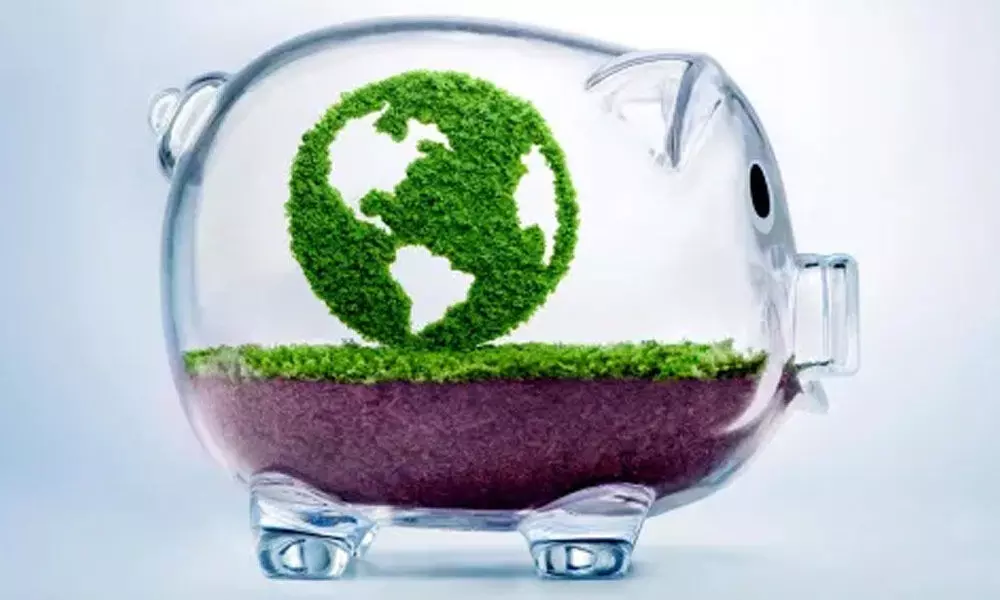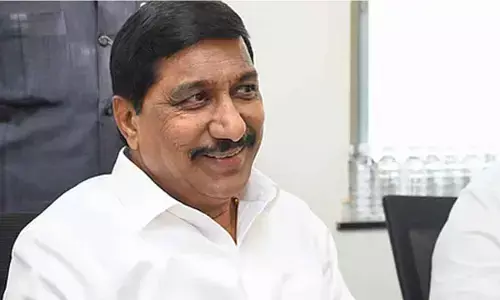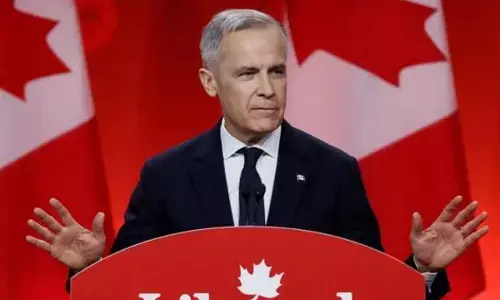Time for global north to finance climate justice

Time for global north to finance climate justice
The most disappointing element of COP26 was the failure on issues related to climate finance and meeting the adaptation needs of those most affected
The Glasgow climate conference ended with a tearful comment on a change of wording in the final declaration that was insisted upon by India and China. This was in relation to coal, where these two countries pushed for the phrase to be changed from 'phased out' to 'phased down'.
This dismayed COP26 President Alok Sharma who later said the two countries will have to explain themselves and what they did to the most climate-vulnerable countries. These kind of comments indicate the North-centric approach of the conference which glossed over the failures of developed countries to meet the needs of developing countries for finance to address the "loss and damage" suffered by them due to the climate crisis.
Sharma may not have heard voices such as the representative of the Dominican Republic who said that instead of finance, all they got was "dialogue" and question if this was climate justice. Other developing countries from Africa felt this was a developed countries COP26 summit and did not reflect the priorities of the South. Surprisingly, it was the resentment of rich countries over the wording change in the declaration that was highlighted by western media, rather than the concerns of vulnerable communities.
For the layman who needs to understand the significance of this particular global climate summit, the term COP stands for Conference of the Parties. These parties refer to the 197 countries that agreed to a new environmental pact, the United Nations Framework Convention on Climate Change in 1992. The 26th meeting being held under the convention, hence it became COP26.
One of the main aims of the Glasgow summit was to ensure that steps are taken to achieve the goal of the Paris Agreement reached in 2015 on containing rise of global temperatures to below 2 degrees Celsius above pre-industrial levels. It is also sought to limit the increase even further to 1.5 degrees Celsius.
India played a significant role in the conference by setting goals for reaching net-zero emissions for the first time. It also outlined five promises at the summit which were outlined by Prime Minister Narendra Modi in his address. Apart from the target of 2070 for net zero, it committed to reducing carbon intensity by 45 per cent and cut projected carbon emission by one billion tonnes by 2030. On renewable energy, the commitments were to bring this component in the country's overall energy mix to 50 per cent and to aim for 50 GW of non-fossil energy capacity by 2030.
In sharp contrast to these detailed commitments, there was little forthcoming from rich countries about emission targets, climate finance or the critical issue of compensation for loss and damage due to the climate crisis. On climate finance, a commitment had been made in 2009 to provide 100 billion dollars annually to the South to support countries that are vulnerable and at the frontlines of the climate crisis. This was meant to give some benefit to poor countries facing adaptation measures that affect their economic productivity and human development. The verbal commitment on funding, however, has remained just that and there has been no progress on actually making good on this promise. The Glasgow summit disappointingly ended with the promise of a "dialogue" on this issue rather than concrete moves towards fulfilling the goals of climate finance. It is this lacuna that was more critical at the conference rather than the draft changes related to coal.
In fact, the focus on wording has obscured the key issue that both coal and fossil fuels were mentioned for the first time at a climate summit. One expert said in a BBC interview that the failure to mention fossil fuels in past conferences was akin to discussing the pandemic without speaking of the virus. It also obscured the fact that developed countries are not prepared to discuss the phasing out of fossil fuels like crude oil and natural gas.
It is relevant to recall that rich countries like the US were able to shift from coal to natural gas because of deposits available within their borders, providing them with a relatively cheap energy source. This facility is not available to most developing countries which are forced to pay heavily for their energy supplies. India, for instance, spends over 100 billion dollars annually just on oil imports.
The need to avoid mentioning a phase out of fossil fuel subsidies was also pointed out not just by India but several other developing countries. In this country's case, the fact that subsidies for cooking gas are given to vulnerable segments needed to be taken into account while considering such a wording in the final statement.
The North has also consistently played down the fact that their carbon emissions on a per capita basis are enormously higher than that of poorer countries. The top three countries in terms of emissions on a per capita basis as Australia, the US and Canada. Their emissions range around 16 to 17 tonnes on a per capita basis compared to 1.8 tonnes for India and the global average of 4.8 tonnes. Some European countries, however, have kept their emission levels much lower, showing that policy measures make a difference in this regard. For instance, the UK has per capita emissions of 5.8 tonnes and France of 4.16 tonnes.
The Glasgow summit thus ended on a mixed note as there were some positives such as the commitment to stay below 1.5 degrees of warming. On the negative side, there were few specific commitments to meet this target.
The most disappointing element of COP26 was the failure on issues related to climate finance and meeting the adaptation needs of those most affected and yet unable to find the funds for mitigation measures. Much more needs to be done to achieve the climate goals set at the summit and one can only hope that commitments on this score are met in the days to come.











